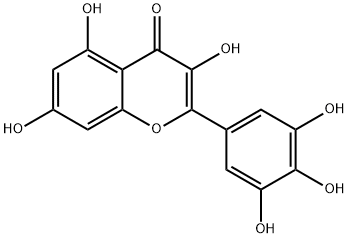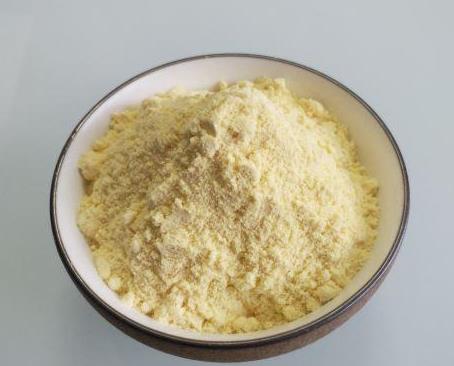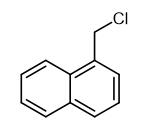Preparation of Myricetin
Myricetin(MYR) belongs to flavonoids, mainly exists in the stems and leaves of vine tea or the bark and leaves of bayberry. It is yellow needle-like or granular crystals, and is easily soluble in acetonitrile, methanol, ethanol and other polar solvents.
Pharmacological action
Myricetin and its derivatives have various pharmacological activities such as antioxidant, anti-inflammatory, anti-tumor, hypoglycemic, analgesic, and hepatoprotective. At present, in terms of its antioxidant function and cholesterol-lowering effect, Europe and the United States have developed FYI, a health product containing myricetin, and listed it, but no myricetin and its derivatives have been approved for marketing or applied for clinical trials as new drugs at home and abroad. In order to obtain myricetin derivatives with druggability, medicinal chemists have carried out a lot of optimization work on their structures, and obtained some derivatives with good pharmacological activity and druggability.
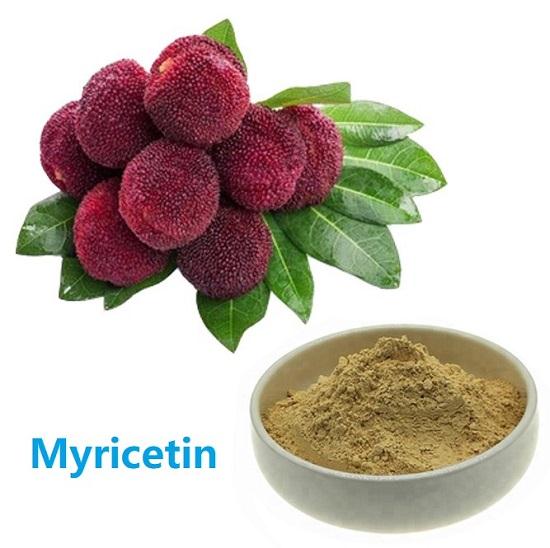
Preparation
Although myricetin is widely present in natural plants, its content is small, and the separation and extraction process is difficult, and the yield is low. In the separation and extraction of myricetin, it has been recently reported that the use of zinc sulfide nanosheets as a new solid-phase extraction material shows better extraction ability than the traditional solid-phase adsorbent silica gel, and has a good application prospect. We can also obtain myricetin from the bark of bayberry by crushing, standing, extraction and other processes, and further hydrolysis to obtain myricetin. This process has high yield, low cost, simple operation and no purification of the product, and is suitable for industrialization.
Myricetin(MYR) belongs to flavonoids, mainly exists in the stems and leaves of vine tea or the bark and leaves of bayberry. It is yellow needle-like or granular crystals, and is easily soluble in acetonitrile, methanol, ethanol and other polar solvents.
Pharmacological action
Myricetin and its derivatives have various pharmacological activities such as antioxidant, anti-inflammatory, anti-tumor, hypoglycemic, analgesic, and hepatoprotective. At present, in terms of its antioxidant function and cholesterol-lowering effect, Europe and the United States have developed FYI, a health product containing myricetin, and listed it, but no myricetin and its derivatives have been approved for marketing or applied for clinical trials as new drugs at home and abroad. In order to obtain myricetin derivatives with druggability, medicinal chemists have carried out a lot of optimization work on their structures, and obtained some derivatives with good pharmacological activity and druggability.

Preparation
Although myricetin is widely present in natural plants, its content is small, and the separation and extraction process is difficult, and the yield is low. In the separation and extraction of myricetin, it has been recently reported that the use of zinc sulfide nanosheets as a new solid-phase extraction material shows better extraction ability than the traditional solid-phase adsorbent silica gel, and has a good application prospect. We can also obtain myricetin from the bark of bayberry by crushing, standing, extraction and other processes, and further hydrolysis to obtain myricetin. This process has high yield, low cost, simple operation and no purification of the product, and is suitable for industrialization.
You may like
Related articles And Qustion
See also
Lastest Price from Myricetin manufacturers

US $0.00/KG2025-04-29
- CAS:
- 529-44-2
- Min. Order:
- 14KG
- Purity:
- 0.99
- Supply Ability:
- 1000KG
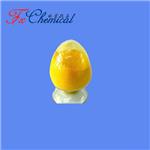
US $220.00-161.00/kg2025-04-21
- CAS:
- 529-44-2
- Min. Order:
- 1kg
- Purity:
- 98.56%
- Supply Ability:
- 5000kg
